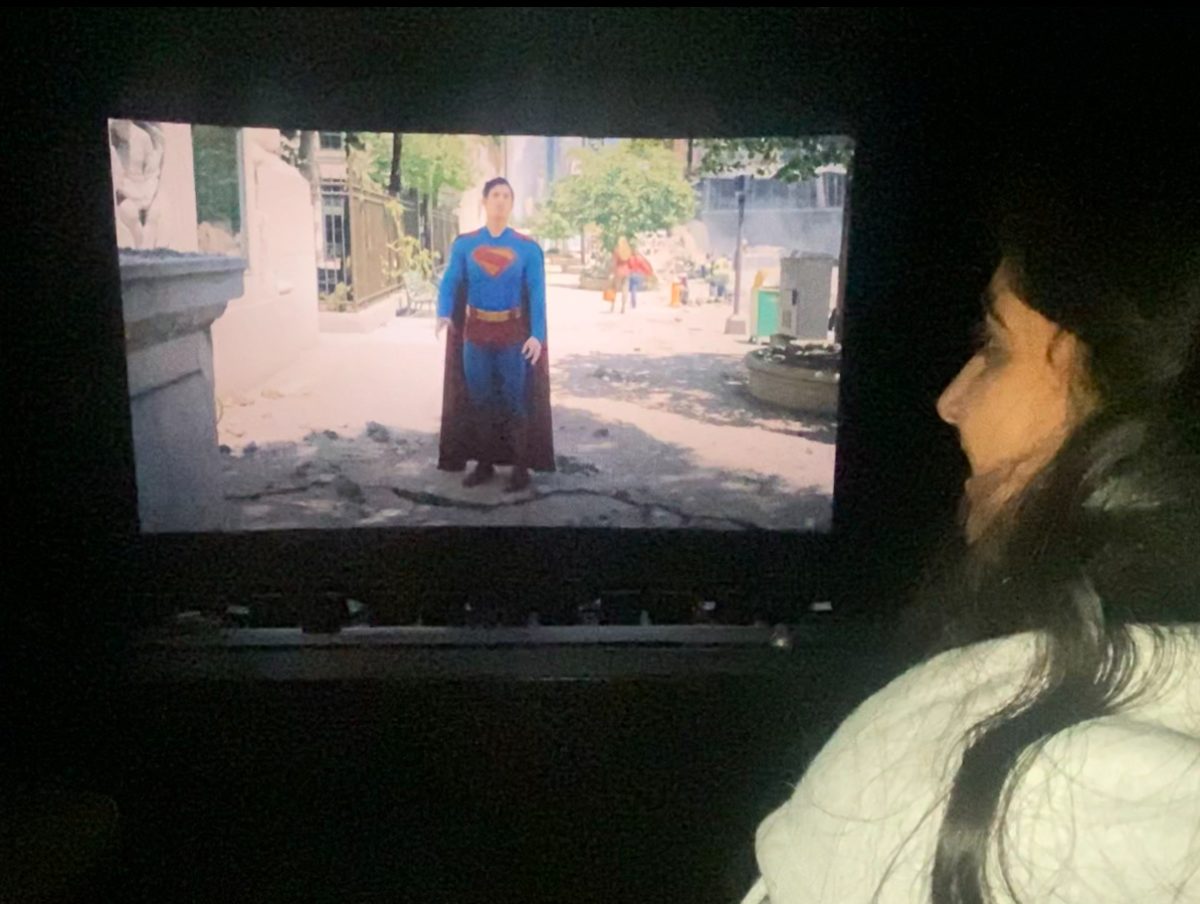“Truth, Justice and the American Way” are the three pillars that Superman has stood on since his popularization in the early 1940s, a triangle meant to hold up the weight of the world’s most famous hero. In 2025, as James Gunn’s “Superman” soared into theaters, framing the hero as an immigrant story, that third pillar began to wobble, and conservative critics exploded, accusing him of rewriting comic books as campaign speeches.
What they seem to forget is that Superman has always been political; he arrived on Earth as a refugee, punched Hitler in the face on a comic book cover and fought the Ku Klux Klan on the radio. To act like politics are a foreign invader in superhero movies is to miss the point of the hero entirely.
Superman was created in 1938, mid-Holocaust, by two Jewish kids of immigrants: writer Jerry Siegel and artist Joe Shuster. Their childhoods in the Great Depression era of Ohio, surrounded by antisemitism, bled into the stories. Superman was not just a man with a cape; he was a refugee and a moral compass against injustice. Politics were baked in from day one, not sprinkled later on. “[Superman] is based on the story of Moses, and I don’t find anything wrong with [Gunn] saying that it’s an immigrant story because in the comics, it’s very clear. Those comics were made by Jewish creators,” English and film teacher Melissa Kaplan said.
Gunn’s adaptation leans into that legacy. The opening credits spell it out plainly: “an extraterrestrial baby sent in a spacecraft to Earth, and adopted by Kansas farmers.” Even without showing the crash landing, Gunn underlines the immigrant metaphor. The longing for his parents and the pull between two homes are all there throughout the whole film.
This framing isn’t new. In the early 2000s, “Smallville” played out Clark Kent’s immigration status directly, with a whole entire episode focused on him defending his friends’ right to stay in the country, despite their paperwork. Even Christopher Reeve, the most all-American Superman to ever flash a grin, went political: In 1987’s “Superman IV: The Quest for Peace,” he disarms nuclear weapons at the height of the Cold War. Henry Cavill’s Superman, decades later, became a reflection of post-9/11 paranoia and surveillance. The Man of Steel always takes in the anxieties of the current moment, like a mirror tilted back at audiences.
The Mirror is sharpest now, especially in today’s political climate. Immigration dominates headlines and elections. Gunn himself doubled down, calling his film “the story of America,” about “an immigrant that came from other places and populated the country” in the same interview. Of course, that statement was bound to split audiences down the middle. For certain people, Superman as an immigrant is polarizing. For others, it’s just who the character is. “He’s always been an immigrant, so I don’t know why it’s an issue now,” freshman Hilina Astatke said.
And then comes the bigger question: should superhero movies even be political? Don’t people go to the theater to escape? “I prefer [politics] left out of movies I watch, because then you can enjoy the movie more,” freshman Madeline McCormack said.
But escapism is political too. Deciding which stories deserve to be told is political. Superheroes are our modern myths, and myths are always about values. The question isn’t whether to inject politics into them, it’s which politics we’re willing to see. Do we want Superman to be hollow, or do we want him to reflect who we are and aspire to be as a community? “Superheroes are a symbol. They’re not just some surface-level thing. Superman represents an ideology. The Superman we see in James Gunn’s adaptation is morally consistent; he upholds the sanctity of life and doing the most for the world,” senior Madden Niles said.
Superman was never just about flying and fighting villains; he was always a refugee, a fighter and a believer in kindness. To strip the politics away from him would be to strip away the hero entirely.







![Junior Grace Song rewatches the trailer for Anora. Promoted as "A Love Story from Sean Baker," it is the eighth feature film under Baker's belt starring Mikey Madison in the titular role. "[Anora] accurately represents women overseen and easily taken advantage of. It emotionally enticed me. The ending is so good," Song said.](https://woottoncommonsense.com/wp-content/uploads/2024/11/Rc5RQTdjtUFtyT7IyQe1rSxkpOTc6NoksY8jtoop-e1732201365565-1200x900.jpg)


Madden Niles • Sep 17, 2025 at 9:28 AM
Thank you for featuring me in your article! I’m happy that you wrote an article on the Superman movie. Also, to anyone reading this in my opinion: Fantastic 4 > Avengers. -Madden Niles
Trixie Verrija • Sep 17, 2025 at 9:22 AM
This is amazing.